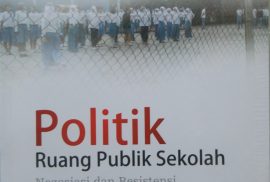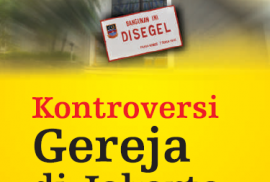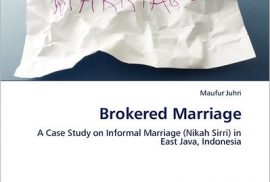 Last December 22nd, 2010 was the last edition of CRCS-ICRS Wednesday Forum for the first semester of 2010. The speaker was the Director of the CRCS UGM, Dr. Zainal Abidin Bagir, whose presentation titled “Religious Freedom, Harmony and ‘the Middle Way’: Analysis of the Indonesian Constitutional Court’s 2010 Decision on the Law on Defamation of Religion”.
Last December 22nd, 2010 was the last edition of CRCS-ICRS Wednesday Forum for the first semester of 2010. The speaker was the Director of the CRCS UGM, Dr. Zainal Abidin Bagir, whose presentation titled “Religious Freedom, Harmony and ‘the Middle Way’: Analysis of the Indonesian Constitutional Court’s 2010 Decision on the Law on Defamation of Religion”.
Starting from an analysis written by CRCS UGM team of which Zainal Abidin was one of team members, they proposed the analysis as a consideration of the Constitutional Court (MK) decision in last April about the Religious Defamation Law (Law No. 1/PNPS/1965). Some NGOs and figures applied for judicial review of that law to the Constitutional Court. For this reason, before making a decision, the Court received considerations from all parties, including CRCS UGM.






 Endi Saputro
Endi Saputro